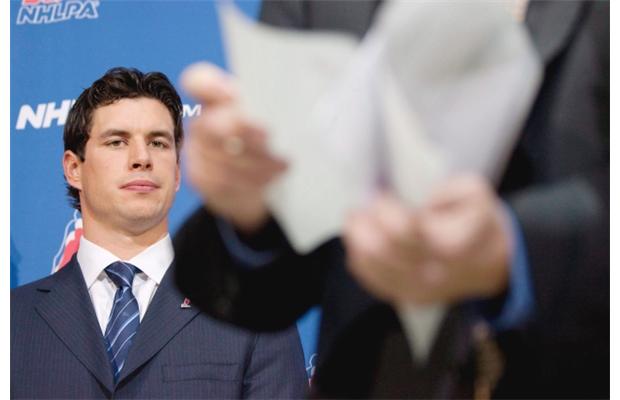by Joce, Senior Writer, All Habs Hockey Magazine
PENTICTON, BC. — In the past few days, it seems like my Twitter timeline is filled with people having trouble understanding why the NHLPA did not accept the NHL’s last offer, with most wondering why they are so much against the five year limit on player contracts considering that few of them have those contracts. I’ve chosen to try to understand their side of the story and, today, inform our readers of the same. Understand that I’m no expert in “capology” and that I have no inside scoop on the matter, and that this is simply a theory.

We all know that General Managers and owners have found a way to get around the cap hit by offering longer term contracts and paying peanuts at the end of it, seeing the player getting paid most of the money in the first half of the term of that said contract. Roberto Luongo, Chris Pronger, Ilya Kovalchuk and company all have such contracts and the league seems to frown every time they see one signed. In most case, the extreme length of the contract going until the player turns 40-42 years old, and/or the (ridiculous) amounts of $1 million for the last couple of years are the main cause of concerns: owners are too obvious.
But look at it from a player’s point of view and to do so, let’s use the best player in the world and his latest contract as an example. Sidney Crosby signed a 12-year contract extension and here is the breakdown of his actual salary in comparison with his cap hit: (source capgeek.com)
YEAR SALARY CAP HIT
2013-14 12,000,000 8,700,000
2014-15 12,000,000 8,700,000
2015-16 12,000,000 8,700,000
2016-17 10,900,000 8,700,000
2017-18 10,900,000 8,700,000
2018-19 10,000,000 8,700,000
2019-20 9,000,000 8,700,000
2020-21 9,600,000 8,700,000
2021-22 9,000,000 8,700,000
2022-23 3,000,000 8,700,000
2023-24 3,000,000 8,700,000
2024-25 3,000,000 8,700,000
As we know, the cap hit is calculated by taking the total dollar value of the deal and dividing it by the number of years of the contract. We should agree that Crosby is worth a lot more today than he will be in 10, 11 or 12 years. The reason why his cap hit sits at a respectable $8.7M is because the last three years of his contract are lower.
If there was a five year limit to the contracts as suggested by the NHL, what would Crosby’s value be for the next five years? As he is at the top of his game, it would likely be around the $12M mark.
This means that his cap hit for that period would be about $3.3M more for each of those five seasons. Now if you’re the Pittsburgh Penguins, do the same exercise with Malkin, Letang, Fleury, Neal and company. You will quickly realize that there will be very limited money left for the rest of the players. As there is a hard salary cap imposed on teams (talking about bringing it down to $60M in year two of the new CBA) and the minimum wage being what it is, this leaves little for the middle man. A guy like Josh Gorges, for example, would likely have to settle for a shorter term deal and getting between $500,000 to $1M per season.
What the players are saying, and I can’t disagree with them in theory, is that a limit on contract length could very well mean that teams will then have a handful of highly paid players and the rest will be at minimum wage. That is huge money we’re talking about here and that’s why, in my humble opinion, they’re fighting for it.








![Prospect Report: Habs Development Camp Testing [GALLERY]](https://habshockeyreport.com/wp-content/uploads/2014/07/IMG_2897.jpg)

![Habs Western Road Trip in Pictures [GALLERY]](https://habshockeyreport.com/wp-content/uploads/2014/03/476898185_slide.jpg)